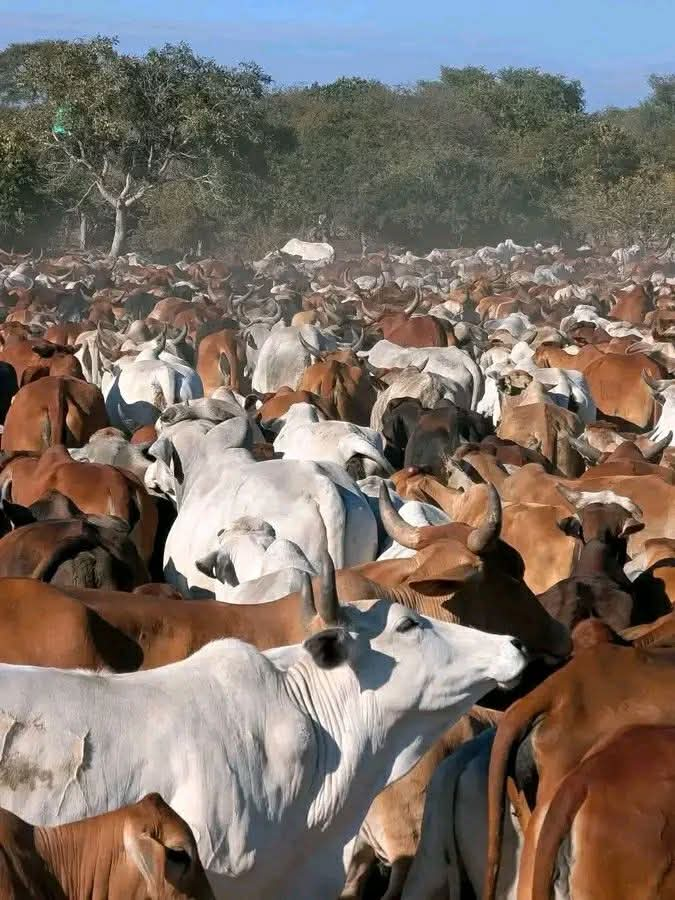The Livestock Productivity and Resilience Support Project (L-PRES), along with other important partners, is working hard to create better rules and support systems for livestock farming in Nigeria.
Dr. Sanusi Abubakar, the National Project Coordinator of L-PRES, spoke about this during a two-day workshop in Abuja. The event was called “Enhancing Regulation and Incentive Frameworks for the Livestock Value Chain in Nigeria.”
Dr. Abubakar said the goal of the workshop was to create a set of rules that everyone — including farmers — can agree on.
He stressed the need for a clear and fair plan to make livestock farming more sustainable, inclusive, and competitive. He also talked about the importance of agreeing on how to enforce rules, monitor progress, and apply rewards or penalties.
At the workshop, they also looked at a report from a study that aimed to improve regulations and support systems in selected livestock areas under the L-PRES project.
Dr. Abubakar explained that L-PRES had done a deep study to understand the current challenges in livestock farming and how existing rules and incentives could be improved.
He said the study found that while there are many opportunities in the livestock sector, the sector cannot grow unless reforms are made. These reforms should balance good rules that ensure safety and fairness with incentives that encourage innovation and investment.
He pointed out that livestock farming is very important for Nigeria’s food supply, job creation, and rural development.
However, he also highlighted big problems like poor organization in the sector, weak enforcement of rules, bad animal care practices, and not enough incentives to try new ideas.
“These issues have made it hard for farmers to produce more, access markets, and compete both in Nigeria and internationally,” Dr. Abubakar said.
He said that a good regulatory system should clearly define what each person or group in the livestock chain should do. It should protect food safety, the environment, fair business, and consumer rights.
Dr. Abubakar urged all stakeholders to work together. He said Nigeria is at a turning point, and with the right rules, support, and teamwork, the livestock sector could help drive the country’s growth.
He added that if the efforts continue, Nigeria’s livestock industry could even compete strongly in international markets.
He also said that support programs like subsidies, tax breaks, certifications, and carbon credits are important. These will encourage people to adopt better and more sustainable practices.
But he stressed that these support systems must be properly planned, enforced, and reviewed often to bring real change to the sector.
Professor Maikano Ari, the Deputy Vice Chancellor of Nasarawa State University, presented an overview of the study report.
He said the report was part of efforts to improve rules and support for selected parts of the livestock industry.
He explained that the plan includes introducing Standard Operating Procedures (SOPs), Minimum Operating Procedures (MOPs), best global practices, and better health and safety systems.
He pointed out weaknesses in the current system, such as no legal support, poor funding for enforcement, lack of staff, corruption, no SOPs, and weak monitoring.
He said the proposed solutions include creating SOPs and MOPs, using international best practices, and introducing systems of rewards and punishments.
Other plans include making enforcement stronger, training both farmers and officials, and making sure that only real farmers get support directly.
The workshop brought together people from the Ministry of Livestock Development, Nigerian Institute of Animal Science (NIAS), Nigeria Agricultural Quarantine Services (NAQS), and the Veterinary Council of Nigeria (VCN).
Also present were officials from the Standards Organisation of Nigeria, NAFDAC, NESREA, state agriculture ministries, international partners, and various farmer and herder groups.


